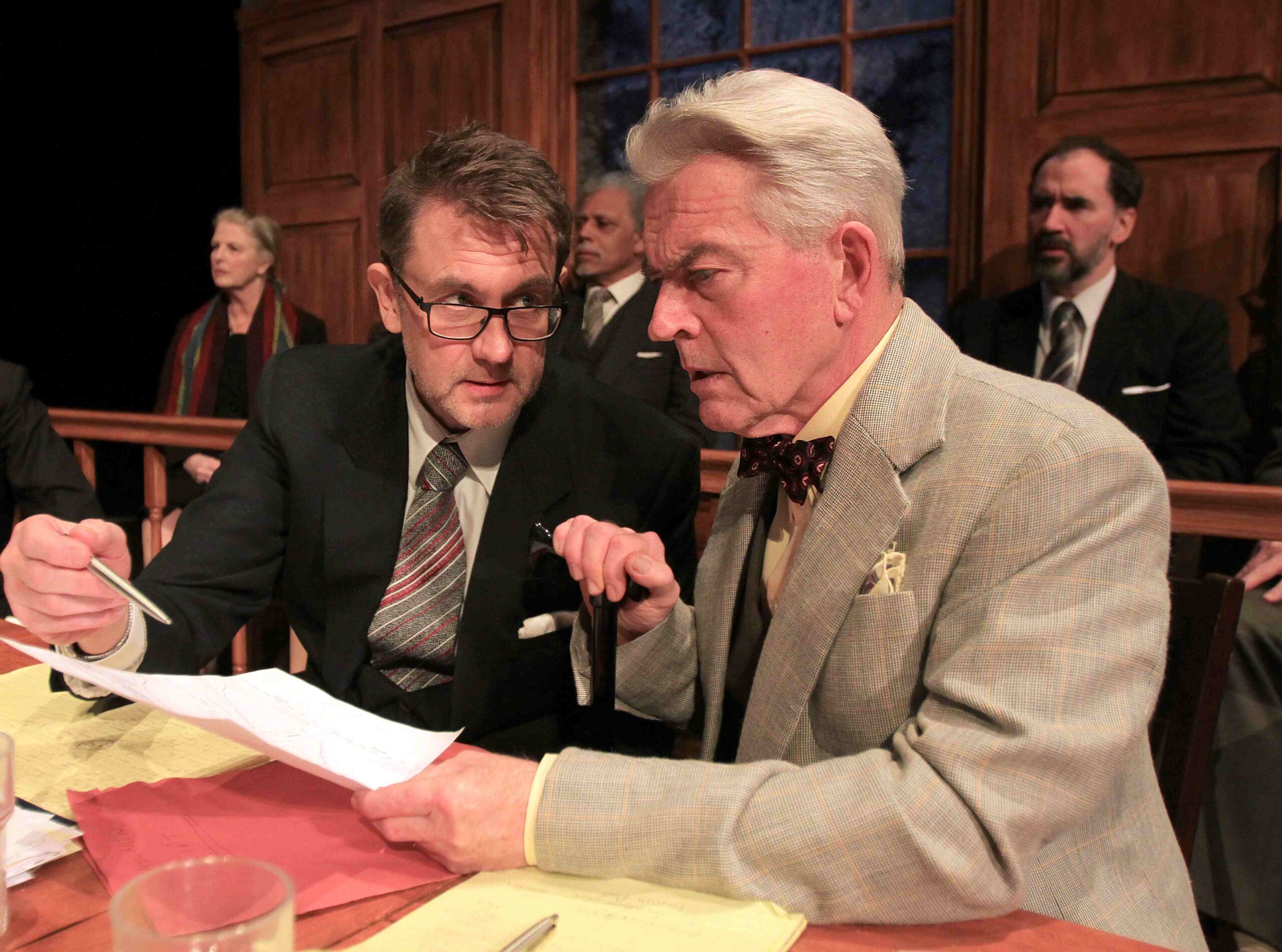
6 – 10 June
There has been much debate recently around the relevance and appropriateness of Steinbeck’s “Of Mice and Men” for a modern audience: should a novella which features racially and culturally offensive language, and which presents outdated and discriminatory views of women, black culture and people with learning and physical disabilities, remain a staple of the GCSE English Literature curriculum? We could ask the same questions of Harper Lee’s “To Kill A Mockingbird”. Noel Coward’s “Private Lives”, the subject of my last review at Cirencester’s Barn Theatre, includes the line “Certain women should be struck regularly, like a gong.” Do literary ‘classics’ still hold a valuable place in a society which no longer reflects the world in which they were written? If the role of a modern playhouse is to provide a blend of contemporary, classic and historical theatre to appeal to a wide audience, then do all plays, from Sophocles to Shakespeare to Stoppard, still have their place, even if they no longer hold a mirror up to the society in which we live..…?
Whether on stage or in cinema, there is no disputing the compelling power of a courtroom drama. Director Michael Lunney’s production of Barry Reed’s 1980 novel “The Verdict”, initially turned into the 1982 Oscar-winning film starring Paul Newman, before being adapted for the stage by Margaret May Hobbs, is a gripping and redemptive tale of how a washed-up Boston laywer takes on the might of the Catholic church, and a cynical, biased judge, in a medical malpractice case where a young woman has been left in a persistent vegetative state following a routine childbirth at a New England Catholic hospital. The very recognisable and talented Jason Merrells excels as Frank Galvin who, whilst seeking justice for his client, faces his own personal demons of alcoholism and a failed marriage. He is a fundamentally flawed hero, yet Merrells breathes life, honesty and plausibility into this troubled character with a powerful and versatile performance in which he rarely leaves the stage. Elements of the story feel comfortably familiar, perhaps because we recognise them from so many other similar stories, and yet this is an absorbing and engaging performance, if a little long at two hours forty minutes. An experienced supporting cast of fourteen actors combine in an impressive ensemble performance: Vincent Pirillo shows warmth and humour as Galvin’s mentor Moe Katz, Reanne Farley is dynamic as the duplicitous femme fatale Donna, and Richard Walsh doubles up as the corrupt Bishop Brophy and the bigoted Judge Sweeney. Lunney himself stars as affable barman Eugene Meehan.
Clever split-staging in Act One provides the twin halves of Galvin’s world: his office (which we sense is also his home) and Meehan’s Irish bar, before switching to a lavish wood-panelled courtroom in Act Two, where we are increasingly drawn into the rising tension as the play builds to its dramatic dénouement.
As with Steinbeck, Lee and Coward, modern audiences will find a few linguistic references culturally obsolete, even unpalatable; the relegation of women to minor characters or a rather clichéd love interest feels very rooted in the early 1980s, and yes, this is a noticeably male-dominated cast delivering a play which stays true to its original source material. But for all this, does this modern, theatrical rendering of a forty year-old novel deserve its place in our theatres today? For me, just like Steinbeck, Lee and Coward, yes it does….but the rest of the jury will have to decide for itself.
★★★★☆ Tony Clarke 8 June 2023
Photo credit: Middle Ground Theatre Company Ltd.


